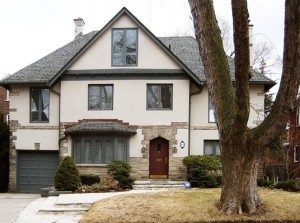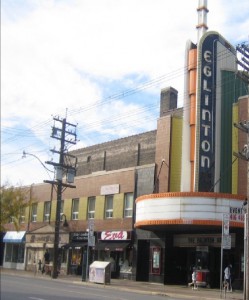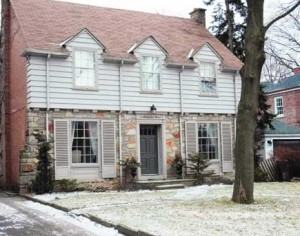The Origins and Development of Lytton Park
In the early 1800’s, the area that is now Toronto’s Lytton Park was a small rural village with very limited access to Toronto. In 1886, the area began is first major developments. The Metropolitan Street Railway was built which gave the area a booming boost in economy.
Soon after in 1888, the Metropolitan Street Railway purchased 200 acres of farm land from the “Beatty” farm near their stations. The Beatty farm had plans for subdivision, and became known as “Glen Grove Park”. This is when Lytton Park was born, and began its initial developments.
At this point however, Lytton Park was a lone wolf. This was until the year 1912, when the area officially became a neighbourhood in the City of Toronto. This was a period of major development for the area. Houses, schools, churches and even parks were all built within the next 20 years.
Today, Lytton Park is one of the most exclusive neighbourhoods in Toronto. Here’s a few characteristics that attract people to Lytton Park:
● It’s real estate is marketed towards the affluent
● There’s multiple shopping districts in the surrounding area
● There’s an abundance of recreational activities to keep active
● It offers close proximity to respected public and private schools
● Convenient and reliable public transit around the City of Toronto
Real estate in Toronto’s Lytton Park varies in value anywhere from just over $600 000 to over one million Canadian dollars. Construction of these homes began around 1890 and ended in the 1930’s, however there’s many new renovations in these beautiful houses. The architectural styles are mainly Tudor and Georgian, and every house in the neighbourhood is detached and have large property sizes with gardens. Inside this prime Toronto real estate, you can find: hardwood floors, leaded glass windows, and a warm fireplace that’s fueled by wood.
Shopping while residing in Lytton Park can be done at more than just one shopping district. The most common three shopping districts include: Yonge Street, Avenue Road and Eglinton Avenue West. Within these three districts you’ll be able to fill all your shopping needs! There’s fashion stores, gift shops, home improvement stores, grocery stores, general stores, restaurants, and a variety of professional services.
Recreational activities in Lytton Park mainly take place outdoors. The local park (Lytton Park), which is where the neighbourhood received it’s name from, offers three tennis courts, and is home to the North Toronto Lawn Bowling Club. The park is surrounded by trees, and is a great place to relax and have a picnic with the family. Herbert Begg Memorial Garden is another local favorite, it’s a large strolling garden that was was donated to the neighbourhood by Herbert Begg’s daughters as a memorial to their father. In the winter time, Otter Creek Park offers a public artificial ice rink.
Education is offered to children and teenagers within walking distance of the Lytton Park neighbourhood. There’s two public elementary schools, one public secondary school, and one private school. All of which are respected Toronto institutes.
Public transportation in Lytton Park is offered in two forms, either subway or bus. There’s two subway stations that Lytton Park residence use depending on where they live, but both the Eglinton and the Lawrence subway stations are close. The bus service runs regular routes along Yonge Street and Avenue Road. From Lytton Park, it takes approximately 15 minutes to get downtown, and approximately 5 minutes to get to the 401 highway.



Speak Your Mind
You must be logged in to post a comment.